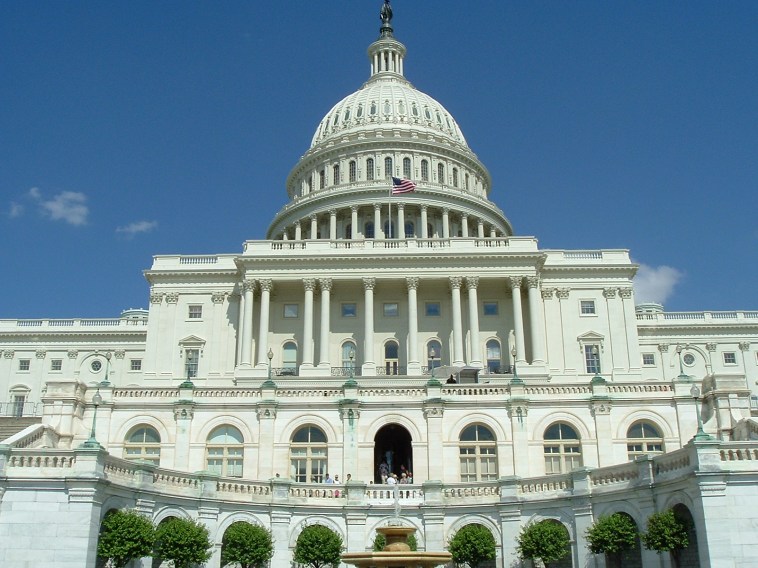Chicken Little, call your office.
Videos By Rare
Once again, Washington is agog about a possible government shutdown, and once again we are hearing dire forecasts of what will happen if that comes to pass. These forecasts are similar to what we heard about sequestration, the automatic budget cuts that took effect earlier this year and promptly did not create a gaping abyss that swallowed our nation whole. Never mind that the supposed cause of a shutdown — some Republicans’ insistence on cutting off funding for Obamacare — is overblown. The mileage to be gained over this issue, from the left’s perspective, comes from painting conservatives as being willing to bring about Armageddon, even though the bill House Republicans actually passed would fund the entire federal government minus Obamacare.
A reporter at USA Today, however, decided to commit an act of journalism and inspected the contingency plans federal agencies have submitted in case of a shutdown. He found about three in five non-defense federal workers would continue to come to work even in the event of a government “shutdown”:
“An estimated 59% of non-defense federal employees would be exempt from the shutdown and would go to work as usual, according to a USA TODAY analysis of 119 shutdown contingency plans filed with the Office of Management and Budget.
“Among them: political appointees, law enforcement, most overseas foreign service officers and anyone else deemed necessary for health or safety of people or property.
“That last category can account for a broad cross-section of federal employees, because positions that support a key function — such as information technology, security or even legal help — are also protected. Even a receptionist responsible for picking up sensitive mail deliveries could be considered essential and exempted from furlough.” (link original)
The effect on the Defense Department is unknown, because the Pentagon hasn’t finished updating its contingency plans. But the same reporter wrote that, in a memo to Defense employees Monday, Deputy Defense Secretary Ashton Carter said “military personnel would continue in a normal duty status, [while] a large number of our civilian employees would be temporarily furloughed.”
So, “normal duty status” — and pay — for our troops, and furloughs for some civilian staff. That kind of change wouldn’t go unnoticed, but it isn’t likely to amount to a dire hardship, either.
But acknowledging that reality doesn’t make for very good political pot shots.
Now for some bigger questions. Could the question of Obamacare funding actually lead to even this kind of “shutdown”?
It doesn’t have to. If Democrats are really so terrified of what might happen in the event of a shutdown, the Senate could pass, and President Obama sign, the House bill which calls for funding every bit of the federal government except Obamacare on a continuing basis. Of course, that won’t happen.
So, yes, there could be a “shutdown” if both sides stick to their guns. Republicans and their supporters will blame Democrats for insisting on funding Obamacare, and Democrats and their supporters will blame the GOP for insisting on defunding the law, and it’s unlikely anyone’s mind will be changed. Then what?
Perhaps Democrats will agree to delay the law’s individual mandate by a year, just as the employer mandate was delayed. There are some Democrats, especially those in the Senate who come from red states and are up for re-election next year, who would love to be let off the hook for a vote to keep Obamacare. Equally, there some Republicans who would just as soon watch those Democrats cast those votes, let Obamacare proceed, and try to pick up Senate seats where they can. There’s enough cynicism and political opportunism to go around.
Personally, I’m torn. Obamacare’s implementation continues to be a train wreck — the latest “glitch” discovered is that the hastily compiled law allows employers to satisfy the requirement for offering affordable coverage for employees only, but not their families, thereby reducing the number of newly insured children by some 500,000. There have been many other glitches, and there will be many more. Experience tells us Washington’s answer, once the law is implemented, will be to throw more and more money at it until it appears to be fixed. The original cost estimates showing the law wouldn’t be a budget-buster — as bogus as they were — will be long-forgotten. Our fiscal decline will be accelerated.
So there are good reasons to try to stop this train wreck in its tracks. At the same time, I don’t have a whole lot of confidence in the way congressional Republicans are going about their effort.
They might have sweetened the deal, making it harder for Democrats to refuse, by including the debt-ceiling increase Obama wants. It wouuld have been the kind of “grand bargain” he always talks about wanting but never can quite bring himself to strike. They could have let the president save some face by framing the defunding of his signature law as a one-year delay (as discussed above) because that’s all it is, anyway. It can’t be a repeal, after all, because the law will still be on the books. It would have had the same effect, while making it hard for their critics to paint them as playing fast and loose with the nation’s fiscal credibility.
That didn’t happen, so it remains to be seen how this will work out, politically and practically. But take the wailing jeremiads with more than a grain of salt.

